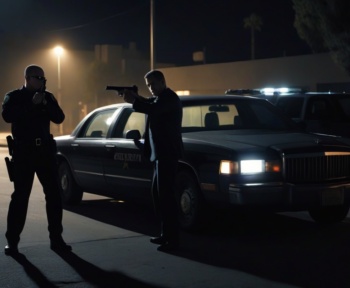In a twist of events that has captured nationwide attention, prosecutors have firmly rejected claims suggesting that they were responsible for leaking footage that purportedly shows Sean “Diddy” Combs assaulting his former girlfriend, Cassie Ventura. This video, disclosed publicly on May 17, 2024, by CNN, has become a crucial aspect of the criminal case against the renowned music mogul. The allegations surrounding the leak underscore broader issues concerning the origins and implications of such disclosures in high-profile legal cases.
The journey of the video, which is central to the federal investigation against Diddy, began when agents delved into allegations against him but found the footage mysteriously missing from the hotel’s server where the incident reportedly occurred. This vital piece of evidence resurfaced unexpectedly when CNN aired it, prompting a wave of speculation and controversy. It’s reported that the prosecutors acquired their copy directly from the CNN website and thus, do not possess the original video. This situation complicates matters as authenticating the footage becomes problematic, a factor that might significantly influence the legal proceedings if the video’s authenticity is questioned during the trial.
The emergence of the leaked video adds a complex layer to an already intricate case, marred by accusations towards Diddy of racketeering, sex trafficking, and other serious charges. The manner in which the video came to public attention raises critical questions about the ethics of journalism and the protection of sensitive evidence. Leaks of this nature could potentially pre-judge the case, influencing public opinion and possibly affecting the judicial outcome due to the prejudicial nature of the content exposed.
Speculation about who might have leaked the video initially pointed towards the Department of Homeland Security, following suspicions voiced by Diddy’s legal team who believed some agents could be the culprits. However, federal prosecutors have noted that the video was not exclusively accessible to government personnel—hotel staff, security personnel, and members of Diddy’s circle also had potential access, making the true source of the leak elusive and widening the circle of suspicion.
Despite the controversies surrounding the video leak, prosecutors argue that there’s no need for an evidentiary hearing to delve into the origins of the leak. Their stance is that the onus should lie on parties other than government agents. However, without clear evidence of where the leak originated, issues related to the chain-of-custody and potential evidence tampering might surface during the trial, presenting significant legal hurdles.
As Diddy awaits trial in Brooklyn under detention, the allegations lodged against him and the leaked video’s implications are profound. He faces charges including racketeering conspiracy and sex trafficking among others, with numerous civil cases also pending. The authenticity and admissibility of the leaked video could be pivotal, potentially reinforcing the prosecution’s claims or, conversely, serving as a crucial point of contention by the defense.
Legal experts emphasize the centrality of such video evidence in the court’s deliberations. “Where video evidence is central, its provenance, handling, and presentation are often pivotal in shaping the trial dynamics,” comments John Doe, a legal analyst. This evidential focus might sway both the jury’s perceptions and the overarching legal strategies deployed during the trial.
The public reaction to the video leak is polarized. Some see it as a step toward unveiling the truth and ensuring justice, while others perceive it as a violation of fair legal process, potentially prejudicing the defendant’s right to a fair trial. Journalist Jane Smith sums up the broader implications: “This case highlights critical tensions between the press’s freedom and the requisite fairness in legal trials.”
Looking forward, as the trial approaches, the unresolved issues surrounding the video continue to loom large over the proceedings. Both the defense and the prosecution are poised to tackle challenges concerning the video’s legitimacy and its eventual influence on the trial’s outcome. The ramifications are far-reaching—beyond potentially altering Diddy’s personal and professional life, the trial’s outcome could also influence future legal precedents regarding the handling of leaked evidence in similarly high-profile cases.
In navigating these complex and uncharted legal waters, the juxtaposition of technology, media influence, and legal ethics comes to the forefront, reflecting broader societal issues surrounding privacy, justice, and the responsible dissemination of information. As the case unfolds, it will likely provide key insights into the legal system’s handling of high-stakes cases, offering a window into intricate processes of evidence management and the ongoing struggle to maintain credibility and ensure justice in the digital age.




